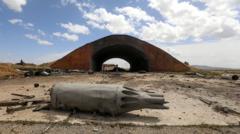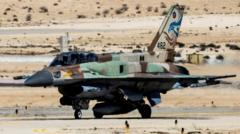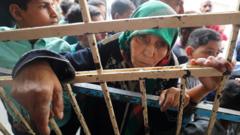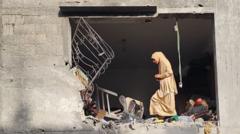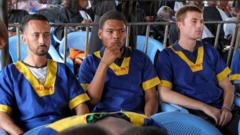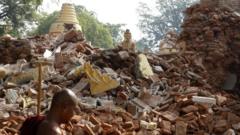Hezbollah, deeply impacted by recent conflicts and internal strife, faces unprecedented challenges in Lebanon. From financial discontent among its supporters to questioning its military capabilities, the group's future may hang in the balance as demands for disarmament grow stronger.
Hezbollah's Future in Jeopardy Amidst Rising Discontent
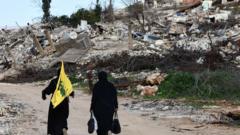
Hezbollah's Future in Jeopardy Amidst Rising Discontent
The Shiite militia faces critical challenges and internal dissent following recent escalations, as it struggles to maintain its grip on power in Lebanon.
Hezbollah's Future in Jeopardy Amidst Rising Discontent
The Shiite militia faces critical challenges and internal dissent following recent escalations, as it struggles to maintain its grip on power in Lebanon.
Hezbollah, deeply impacted by recent conflicts and internal strife, faces unprecedented challenges in Lebanon. From financial discontent among its supporters to questioning its military capabilities, the group's future may hang in the balance as demands for disarmament grow stronger.
A recent attack on a pager system designed for communication among Hezbollah members reveals the group's precarious position in the wake of escalating conflicts with Israel. On 17 September, an explosive device embedded in the pagers detonated, resulting in severe injuries and heightened skepticism regarding the group's tactics. Adam, a nurse working with Hezbollah, described a harrowing experience where he lost fingers and eyesight due to the explosion.
Traditionally portrayed as a formidable militia, Hezbollah also functions as a political organization with social services in Lebanon. However, the latest war has drastically weakened its military capacity and strained financial supports for reconstruction efforts. The World Bank estimates a recovery cost of around $11 billion across Lebanon, with many supporters expressing frustration over the lack of post-war aid and reconstruction initiatives.
Support for Hezbollah remains evident in certain areas, yet growing dissent suggests a demographic shift among its traditionally loyal base. Many individuals question whether Hezbollah can reclaim its stature following heavy losses during recent conflicts and whether it should retain its arms amid discussions of disarmament in the new political landscape under President Joseph Aoun.
Hezbollah's past strength lay in its substantial military wing, positioned as a counter to Israel. Still, recent losses and a shift in Syrian politics complicate its supply lines and strategy. As tensions amplify, both within and outside its ranks, the group faces a pivotal moment that could redefine its future and impact Lebanon's fragile political fabric.
With discontent brewing, critics believe Hezbollah may be at risk of fracturing if it does not reassess its strategies and align with the evolving dynamics of Lebanese society. The political landscape shows signs of change, as the likelihood of Iran's support dwindles and a new governmental stance seeks to disarm the militia.
Individuals like Adam symbolize the personal sacrifices made amid the conflict, while broader sentiments question the tactical decisions made by Hezbollah. As communities grapple with the devastation left by recent hostilities, the future remains uncertain for both Hezbollah and the socio-political environment in which it operates.

